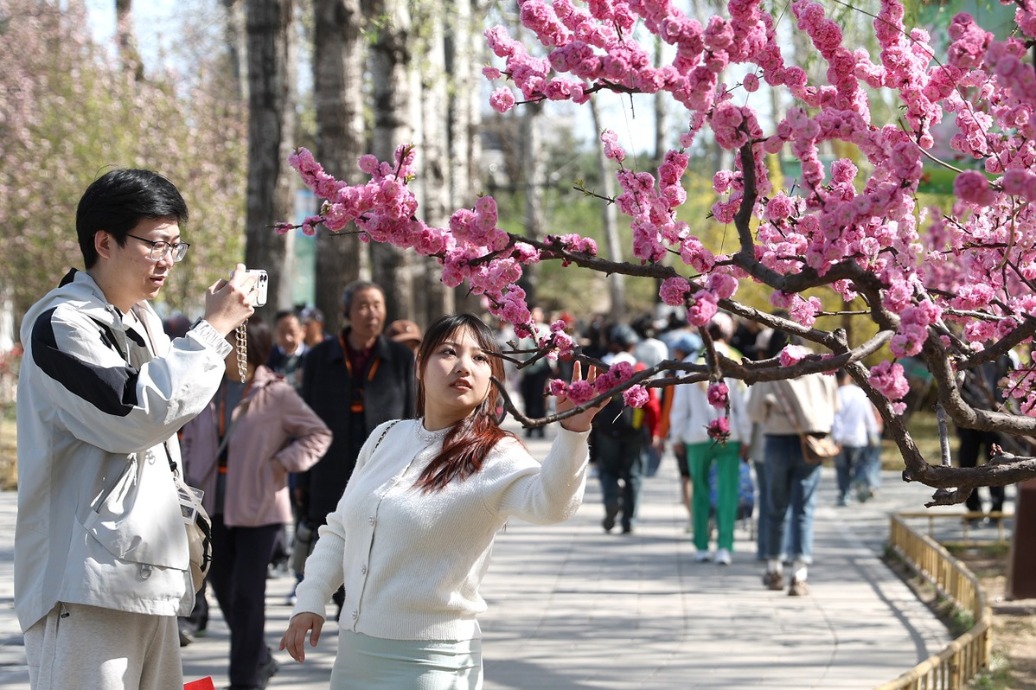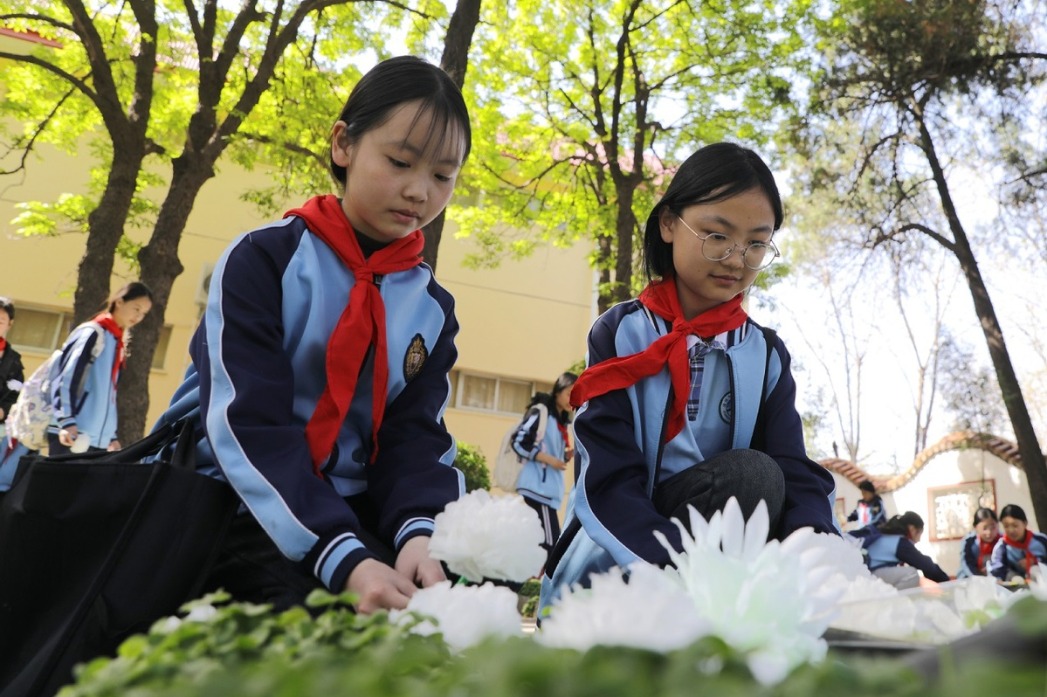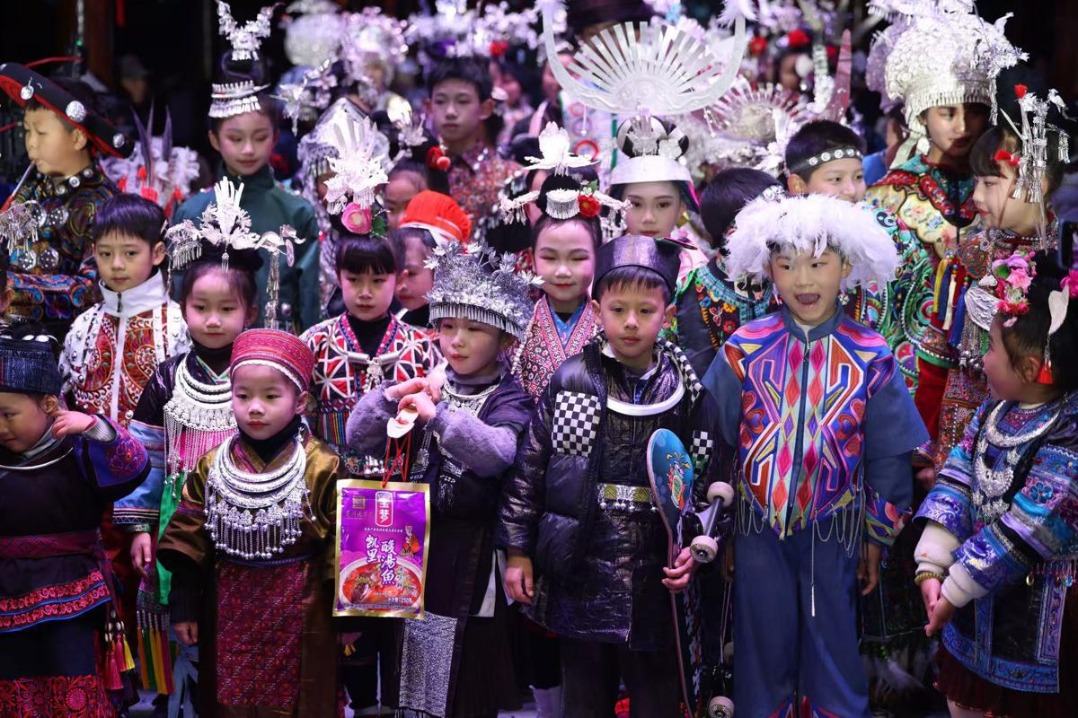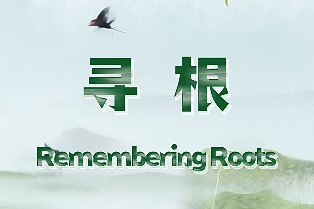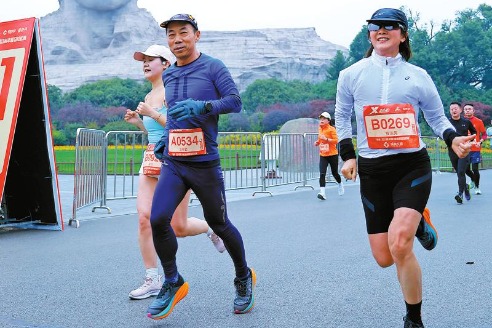What to know about whole-process people's democracy in China

BEIJING -- Democracy is a universal value, yet it takes different forms across civilizations. While Western democracies often equate democracy with elections, China has developed a distinct model -- whole-process people's democracy -- tailored to its national conditions and historical traditions.
WHERE IS IT FROM
First introduced in 2019, the concept of whole-process people's democracy is deeply rooted in China's rich political philosophy, where governance is centered on the people as the foundation of the state.
Whole-process people's democracy is a creation of the Communist Party of China in leading the people to pursue, develop and realize democracy, embodying the Party's innovation in advancing China's democratic theories, systems and practices.
It is a logical outcome of history, theory and practice based on the strenuous efforts of the people under the leadership of the Party.
WHAT DOES IT MEAN
As the name suggests, whole-process people's democracy ensures public participation throughout the entire process of governance, covering all aspects of the democratic process and all sectors of society.
Unlike election-centric Western democratic models, China's system weaves together law-based democratic elections, consultations, decision-making, management, and oversight within a structured institutional framework. This approach fosters broad and continuous participation, ensuring that governance decisions reflect the collective will and evolving needs of society.
Through these procedures, citizens actively engage in discussions on public affairs, working toward the greatest common ground based on the aspirations and interests of the entire population. Their rights are safeguarded, their voices are heard, and their well-being is prioritized in the decision-making process.
At its core, this model guarantees that the people are the true masters of the country, with public affairs governed through consensus-driven discussions and extensive consultation.
HOW DOES IT WORK
Whole-process people's democracy is not just a set of institutions and procedures, it is an active, participatory system where civic engagement plays a crucial role.
A key example is "two sessions," the annual meetings of China's top legislature, the National People's Congress (NPC), and the top political advisory body, the National Committee of the Chinese People's Political Consultative Conference (CPPCC).
Nearly 3,000 NPC deputies and more than 2,100 CPPCC National Committee members convene in Beijing to deliberate on and discuss major policies and governance matters, representing a broad cross-section of society.
The NPC deputies come from all walks of life, including many front-line workers and farmers who ensure grassroots representation. Notably, even the smallest ethnic minority group has at least one representative. Meanwhile, CPPCC National Committee members include officials and prominent figures such as scientists, educators and entrepreneurs.
During the "two sessions," these representatives engage in crucial public issues, from income distribution and healthcare to education, housing, elderly care, and childcare.
National lawmakers deliberate bills and reports and participate in all NPC elections. They also have the power to move for the recall of certain state officials according to the law, propose organizing committees of inquiry into specific issues, and criticize or offer suggestions and comments on all work.
Meanwhile, political advisors offer their policy proposals, thus actively contributing to national governance.
WHY DOES IT MATTER
By ensuring broad and continuous participation, China's whole-process people's democracy represents a governance model that is both effective and deeply rooted in the will of the people.
The whole-process people's democracy has proven effective in addressing societal challenges and improving governance. Many significant policies -- such as enhanced protection of labor rights for food delivery and ride-hailing workers, as well as measures to support small and medium-sized enterprises -- have emerged from legislative proposals and public consultations.
At its heart, China's democratic model embraces the belief that democracy is not a decorative symbol but a practical tool for solving real problems and improving people's lives.
- 6 killed, 1 injured in car accident in China's Chongqing
- Chinese railways expect travel rush during Qingming holiday
- Severe HFMD cases drop sharply as prevention efforts continue
- APASL 2025 highlights collaborative efforts in combating viral hepatitis
- Former residence of Jiang Zemin in East China opens to public
- Unique spring in Xizang
















